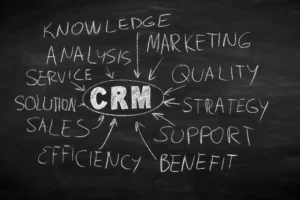Introduction
Refrigerators are essential appliances in every household, ensuring the preservation of food at optimal temperatures. However, in cities like Dubai, where hard water is common, refrigerators can suffer from performance issues due to mineral buildup. Hard water contains high levels of calcium and magnesium, which can affect various components of your fridge, leading to inefficiency and potential breakdowns. In this guide, we’ll explore how hard water impacts refrigerators, prevention methods, and maintenance tips.
How Hard Water Affects Refrigerators
Hard water primarily affects refrigerators with built-in water dispensers and ice makers. The minerals in hard water accumulate over time, causing blockages in water lines, filters, and ice maker components. This buildup leads to reduced water flow, inefficient cooling, and even damage to essential parts. Additionally, mineral deposits can alter the taste of water and ice, making them less desirable for consumption. Regular maintenance and water softening techniques can help prevent these issues, ensuring optimal performance and longevity of your refrigerator.
Common Issues Caused by Hard Water
Clogged Water Lines and Filters – Mineral deposits accumulate in water supply lines, reducing water flow and efficiency.
Reduced Ice Production – Scale buildup affects ice makers, leading to smaller, misshapen, or cloudy ice cubes.
Bad Taste and Odor – The high mineral content can alter the taste and smell of water and ice.
Reduced Cooling Efficiency – Hard water can affect the evaporator coils, leading to inefficient cooling.
Frequent Repairs – Mineral buildup can lead to increased wear and tear, resulting in costly repairs.
How to Prevent Hard Water Damage to Your Refrigerator
Install a Water Softener
A water softener removes excess minerals from hard water, preventing scale buildup in the refrigerator’s water dispenser and ice maker. This ensures a cleaner water supply and improves appliance longevity.
Use a Water Filter
High-quality refrigerator water filters help reduce mineral content. Replace filters regularly, as per the manufacturer’s instructions, to ensure efficient filtration and water quality.
Clean Water Lines and Ice Maker Regularly
Mineral deposits accumulate over time, affecting water flow and ice production. Cleaning water lines and the ice maker with a vinegar-water solution can help dissolve buildup and maintain efficiency.
Flush the Water System Periodically
Running a few gallons of water through the dispenser helps remove any accumulated minerals, preventing blockages and ensuring clean water flow.
Schedule Regular Maintenance
Professional maintenance services can help detect and prevent hard water damage before it escalates. If you experience persistent issues, consider seeking fridge repair in Jumeirah to ensure proper functioning.
Guide to Cleaning Hard Water Deposits from Your Fridge
Turn Off the Refrigerator – Unplug the unit to ensure safety before starting the cleaning process.
Remove and Inspect the Water Filter – Replace the filter if it shows signs of heavy mineral deposits.
Clean the Water Dispenser and Lines – Use a vinegar solution (1:1 ratio of vinegar and water) to dissolve mineral buildup.
Flush the System – Run clean water through the dispenser to remove any remaining vinegar solution.
Wipe the Ice Maker and Dispenser Nozzle – Use a soft cloth and vinegar solution to remove visible scale deposits.
Reassemble and Restart the Fridge – Plug in the fridge and test the water dispenser and ice maker for proper functioning.
FAQs About Hard Water and Refrigerators
1. How can I tell if hard water is affecting my refrigerator?
Signs include reduced water flow, clogged filters, cloudy ice cubes, and an unusual taste or odor in water and ice.
2. How often should I change my refrigerator’s water filter?
It’s recommended to change the filter every six months or as per the manufacturer’s guidelines to maintain optimal water quality.
3. Can I use a water softener specifically for my refrigerator?
Yes, inline water softeners are available and can be installed directly on the refrigerator’s water supply line.
4. Does hard water affect the fridge’s cooling system?
While it primarily affects the water system, excessive mineral buildup on evaporator coils can reduce cooling efficiency over time.
5. Where can I get professional help for fridge maintenance in Dubai?
You can contact The JVC Services Providers for expert refrigerator maintenance and repair services.
Hard water can negatively impact your refrigerator’s performance, leading to clogs, inefficient ice production, and increased maintenance needs. By using water softeners, regularly changing filters, and cleaning your appliance, you can prevent mineral buildup and prolong the life of your fridge. If you experience persistent issues, consider seeking professional help from The JVC Tech Location to ensure efficient and long-lasting performance.










